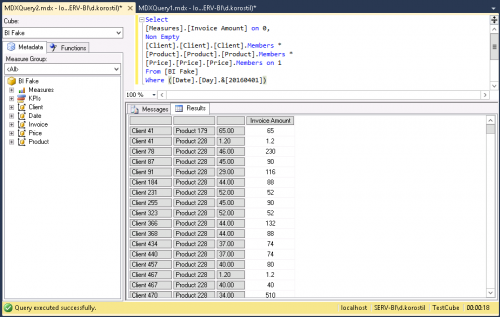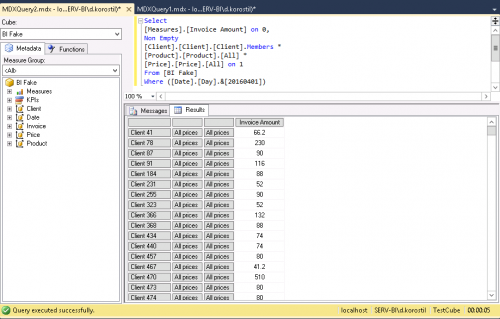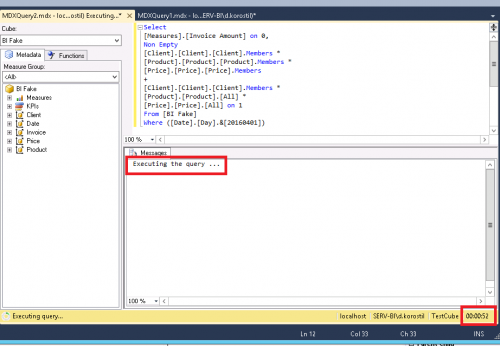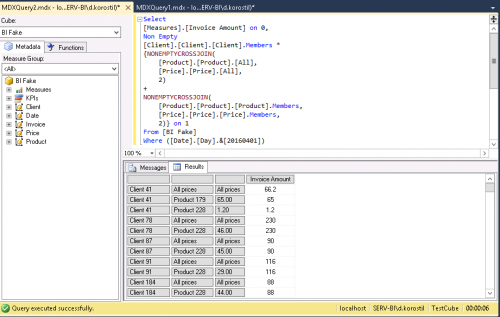The totals and the NonEmptyCrossJoin function
Let’s suppose we need a report with the following structure:
| Client1 | Product1 | Price2 | Amount1 |
| Client1 | Product2 | Price1 | Amount2 |
| Client1 | TotalAmount1 | ||
| Client2 | Product3 | Price2 | Amount3 |
| Client2 | Product2 | Price1 | Amount4 |
| Client2 | Product1 | Price1 | Amount5 |
| Client2 | TotalAmount2 | ||
| AllClients | GrandTotalAmount | ||
Excel is able to generate, but it’s laggy. Let’s start from the query without totals:
Let’s get the total for each client:
Let’s unite two queries:
Boom, it looks like the performance of the query will last forever. Why do the two queries perform way faster separately than together? We should blame Union, also known as the +, function for that. Separately, we throw the empty members away dynamically. When it comes to two big crossjoined sets to be united before the query start it takes time, depending on the number of members, not the query result. Luckly, there is a NonEmptyCrossJoin function which will filter the empty members out dynamically. Thus, the performance is okay once again:
Happy querying. ;)
-
SQL interview tasks #1
12 July 2020
-
How to speed up migration from local DB to Azure
19 November 2018
-
The dynamic members
24 March 2017
-
My name is Rank, Dense Rank!
14 March 2017
-
Web OLAP: Step one
27 December 2016
-
The DistinctCount and its rough edges
30 November 2016
-
Will the SSAS be ported to linux?
17 November 2016
-
The totals and the NonEmptyCrossJoin function
11 November 2016
-
The best DistinctCount practice in SSAS
17 October 2016
-
Generate row set recursively
13 September 2016



